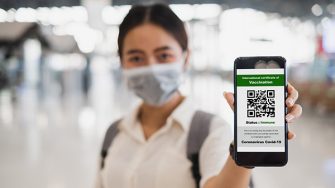A COVID-19 Vaccine Passport - a slap in the face for many
Dr Augustine Asante, Director of the Global Health research program at the UNSW School of Population Health, writes about the equity implications of a COVID-19 vaccine passport that extend beyond health.

